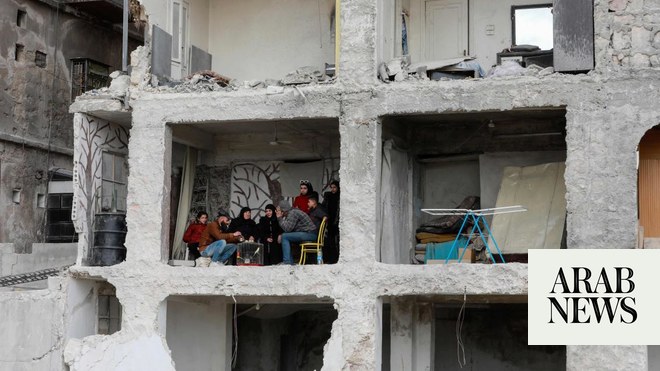
Homeowners in Ireland hit by a devastating building defect that causes walls to “crumble like Weetabix” are set to reject a government compensation scheme unless it offers to cover 100% of their costs.
Campaigners say the prospect of dream homes being demolished is causing people to kill themselves and families to break up, and that thousands of people could be left homeless in rural Ireland.
They plan to protest in Dublin on Friday to put pressure on the government, which could end up footing a bill for an estimated €3.2bn (£2.7bn), according to a report in the Irish Times.
“We are drowning and the government is standing on the pier with lifejackets and they won’t give us them,” said Paddy Diver, one of the founders of the 100% Redress campaign group and owner of a defective house in one of the worst affected areas in County Donegal.
The problem homes were built using building blocks that lose their strength and crumble because of an excessive amount of the mineral mica, thought to be from local quarries.
The precise number of homes built using the blocks is not known, but campaigners estimate there are at least 20,000 and blame the government for not enforcing building regulations.
Joseph McLaughlin, whose house in Carndonagh in Donegal is riddled with cracks, said that when an engineer was hired to test for mica, he “drilled through the wall like it was a pound of butter”. McLaughlin said the blocks were “just like Weetabix”.
Michael Doherty, the leader of the Mica Action Group, has expressed dismay over reports that the government is poised to sign off on a compensation scheme that will limit funds to €350,000 per house and set other conditions that will put the scheme beyond the reach of many of those affected.
Angeline Ruddy, a schoolteacher in county Donegal, is one of three sisters who live in homes built with the defective blocks, which must now be demolished. She said people were “on their knees” with the mental and financial strain.
The so-called mica disaster has echoes of the controversy that erupted after the Grenfell Tower fire in the UK, where developers, local councils, freeholders and government have argued over who was to blame while thousands of people remain in potential firetraps because of dangerous cladding.
It is also highlights the long shadow cast by the Celtic Tiger boom and crash, which left a legacy of thousands of ghost estates and badly built homes across Ireland.
The worst-hit counties are Donegal and Mayo, but tánaiste Leo Varadkar said recently that the department of housing had also received requests from local authorities in Clare, Limerick, Sligo and Tipperary to engage in the defective concrete blocks grant scheme.
In a position paper submitted to the government’s defective blocks working group, Donegal family representatives demanded 100% compensation in line with homeowners in Dublin and the east of the country who were hit with a similar defect caused by pyrite in building blocks.
Their scepticism over the mooted government scheme, which is expected to be announced in the next three weeks, is fuelled by difficulties encountered by a previous initiative that offered to pay 90% of the homeowners’ costs.
That scheme was described as “an absolute white elephant” by Ruddy, who spent nearly €7,000 on engineers and other professional services to prove her eligibility.
She said the scheme was also unfit for purpose because it required complicated applications to be made online in a country where 20% of the population do not have home broadband.
Pharmacist Féilim Henry, who lives half an hour from Ruddy, described the existing scheme as “very cynical”.
He worked out that by the time he paid for engineers’ fees, lab tests and demolition costs, the cap of €275,000 in compensation for his €400,000 home was reduced to below €200,000.
Doherty described the situation as a humanitarian crisis.
“We are intending to make our views on this very very clear on 8 October. We will be marching on Dublin again, and we’ll be expecting the counties that are affected to stand up and be counted,” he said, adding that MPs who did not support the 100% redress scheme would be punished by their electorate.
Ahead of Friday’s protest march, Thomas Pringle, an independent MP for Donegal, accused the government of “disingenuous bullshit” over the scandal, and said it hadn’t “shown the slightest bit of interest” in the real solutions.
The housing department said the housing minister, Darragh O’Brien, had acknowledged the current scheme was not working as originally intended. But he assured homeowners at a meeting that he understood “their stress and hardship” and promised to enhance the existing compensation scheme.












